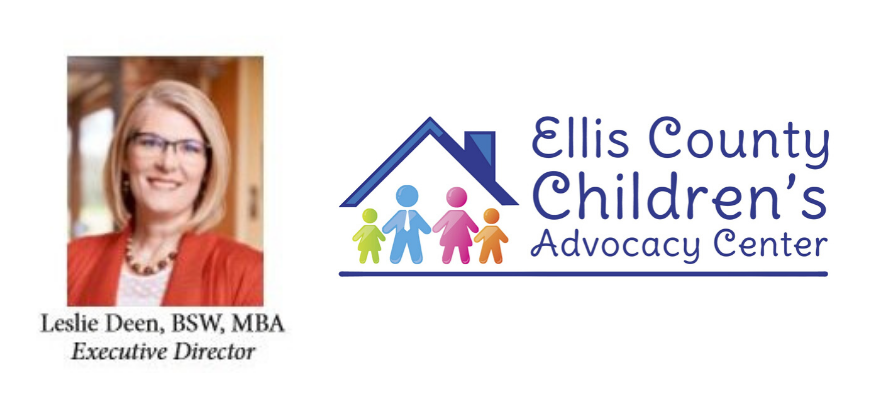
Support for Children during COVID-19
We’ve all felt our stress levels increase as the coronavirus crisis has deepened across Ellis County communities. Anxiety about education, income and health—the building blocks needed to thrive—is at an all-time high.
April is Child Abuse Prevention Month and we continue to identify the importance of keeping our children safe during these unique times. Evidence would suggest that the spike in abuse and the incredible stress that everybody’s going through appear definitely to be linked. The threat to the most vulnerable among us is immediate: school closures, movement limitations, parental substance abuse, financial stress, the disruption of routines, lack of access to mental health programs and the lack of other accessible support systems are combining to create an alarming increase in risk to children’s wellbeing and safety.
Guest columnist, Leslie Deen, Executive Director of the Ellis County Children's Advocacy Center shares about her observations & concerns over the past two months:
______________________________________________________________________________________________

"For child advocates during a global pandemic, the worry is real!"
Usually in April, child advocacy organizations are having candlelight vigils, painting the town blue, and organizing block parties to bring about public awareness to child abuse. This April has brought new challenges for the Ellis County Children’s Advocacy Center. Under normal conditions, the Children’s Advocacy Center provides 340-400 forensic interviews, over 2,000 individual family advocacy services, and nearly 700 therapy sessions for victims and their non-offending family members annually.
Also, under normal circumstances, school personnel, who I call our “first responders to child abuse”, see children every day and notice major challenges in behavior, mood, or other signs of abuse. Schools being closed leaves those children isolated, sometimes alone, and without eyes on them. In fact, across the state, we have seen a 40-60% decrease in calls made to the Texas Child Abuse Hotline. In Ellis County, the number is more like a 50% reduction in the number of calls. However, during this time of quarantine and stay at home orders, although the overall number of calls are down, the number of serious abuse and domestic violence cases are not.
.png)
The challenge is getting information to children who may be in a bad situation and helping them know what they can to do about it. The Ellis County CAC has teamed up with WISD and other ISD’s in Ellis County to reach out to children and give them a voice. The idea is to tell children that if they are feeling sad, scared, nervous, anxious, mad, etc. they can tell someone. We had the idea to share with children color pages and information made just for them in the meals that ISD’s were providing to them and on ISD social media platforms. This partnership continues to throw a lifeline out to children while sharing a message that we all need to remember from time to time, there is much we can do with the feelings we feel and the most important thing is to tell someone.
- Leslie Deen, Ellis County Children's Advocacy Center
Resources shared to local school districts:
- Body Safety Rules
- How Do I Feel Today?
- What Do I Do With The Feelings?
- Ellis County CAC - Other Resources
______________________________________________________________________________________________
HOW YOU CAN ADVOCATE
The best advocates for children during this challenging time is YOU!
- Friends, neighbors and extended family members can replace the eyes and ears of teachers and counselors to report suspected child abuse.
- Drop off small items to ease parents’ stress—anything from a couple of bags of groceries to a few rolls of toilet paper to a stack of coloring books and crayons could make a difference. ASK what you can do to help while maintaining social distancing.
- Check in virtually with those you know who have young children, especially those under five, who are at the highest risk for abuse.
- Pinwheels for Prevention: In 2008, Prevent Child Abuse America introduced the pinwheel as the new national symbol for child abuse prevention through Pinwheels for Prevention. Throughout April, you can celebrate the lives of loved ones by honoring them with a pinwheel. Color one in with this Pinwheels for Prevention coloring sheet—or try making your own pinwheel with this helpful guide
If you suspect abuse or neglect, contact the Texas Department of Family and Protective Services (TDFPS) toll-free at 1-800-252-5400, 24 hours a day, seven days a week. You can also file a report via the TDFPS Abuse Hotline website.
For parents who’re struggling with keeping their children safe and healthy during this crisis, United Way has put together a list of resources and tips for how to parent safely.

